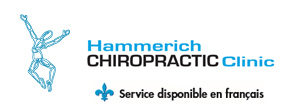The practice of massage therapy is the assessment of the soft tissue and joints of the body and the treatment and prevention of physical dysfunction and pain of the soft tissue and joints by manipulation to develop, maintain, rehabilitate or augment physical function, or relieve pain. (Massage Therapy Act 1991)
Massage Therapy includes:
General Swedish Massage
General Swedish Massage techniques including effleurage (gliding), petrissage (kneading), tapotement (rhythmic tapping) and vibration/shaking are used to decrease tension in muscles, increase circulation and reduce overall stress.
Deep Tissue Massage
A more intense, focused type of massage using specific techniques to address chronic muscle tension and adhesions in deeper tissue structures of the muscle and connective tissue [fascia].
Myofascial Release
Manual stretch techniques applied to the connective tissue (fascia) surrounding muscles and other structures in the body in
order to decrease restrictions that result from injuries, stress and poor posture.
Lymphatic Drainage Techniques
Gentle and specific techniques are applied to the body in order to facilitate lymph movement and drainage. Used for causes of edema such as lymphedema and swelling resulting from injury.
Breathing Techniques
Techniques such as diaphragmatic breathing can increase relaxation, assist in stress management, aid digestion, increase
overall energy levels and decrease muscular tension in the body.
Hot Stone Massage
Warmed basalt stones along with Swedish massage techniques are used to help relieve pain, improve circulation and relax
muscle tension.
Reiki
A relaxing, non-invasive holistic healing approach that eases pain and stress by balancing the Chakras of the body through gentle touch on or above the body.


